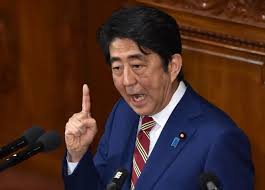Voting in Japan’s snap general election is over, and at the time of writing, exit polling suggests a landslide victory for sitting Prime Minister Shinzo Abe’s ruling coalition, although most polls indicate that it will fall just short of the constitutionally important two-thirds majority. If the polls are broadly right, it seems clear that Abe will be able to continue as Prime Minister for another three years at least, with a stronger mandate to pursue the agenda he is known for. So, what is the future likely to hold? 
Prime Minister Abe is best known for wanting to change the pacifist content of the Japanese constitution. This would enable Japan to build real fighting armed forces, and might help tilt the balance of power away from China and North Korea and more towards the U.S./Japanese/South Korean alliance. Japan could conceivably even become a nuclear power, although this is something of a taboo subject in Japan because it remains the only country to have ever suffered a nuclear strike. Should North Korea declare itself a nuclear power, Japan might become increasingly tempted to arm itself with such weapons, or at the very least with much stronger conventional forces. North Korea’s recent actions are probably having the effect of shifting Japanese public opinion more in favor of Abe’s policy.
What effect might this scenario have upon the Japanese Yen? It is difficult to predict, because the Yen currently seems to function more as a barometer of global risk appetite than as an indicator of the health or otherwise of the Japanese economy. Abe’s victory, especially if he wins more than a two-thirds majority, would usually strengthen the Yen, but the U.S. Dollar / risk rally which got a boost last week is quite likely to override that.

